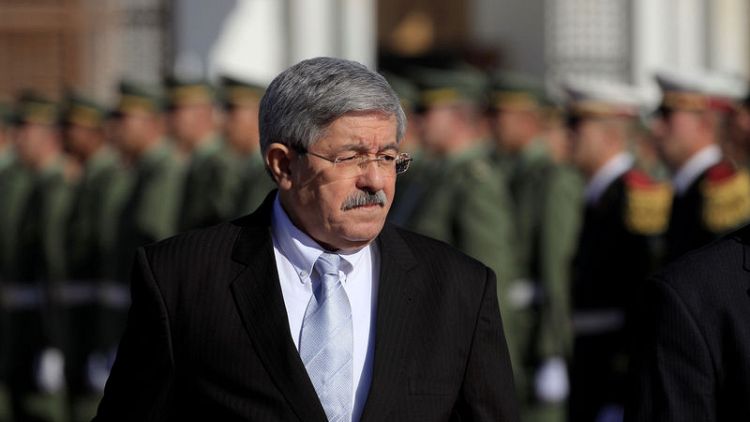By Lamine Chikhi and Hamid Ould Ahmed
ALGIERS (Reuters) - Algeria's army chief of staff said on Tuesday several big corruption cases would come to light in a crackdown on systemic graft, private channel Ennahar TV reported.
A number of figures from the ruling elite including the finance minister, ex-prime minister and several oligarchs have come under investigation over corruption since mass protests forced President Abdelaziz Bouteflika to resign on April 2.
Lieutenant General Ahmed Gaed Salah, the army chief of staff, gave no names or details on Tuesday but vowed to help the judiciary handle corruption cases freely.
"The judiciary has been freed from all pressures," he said in a speech at a military base in the eastern city of Constantine. "The country will be cleansed of corruption and corrupt people."
Salah spoke hours after former prime minister Ahmed Ouyahia, who was sacked as part of a cabinet reshuffle two days before Bouteflika resigned, appeared in court as part of a corruption investigation.
There was no immediate comment from Ouyahia or his lawyers. It is up to the court to decide whether there is enough evidence for him to face a formal charge and trial.
"Put Ouyahia in prison," read a banner held up as dozens of protesters gathered near the court in the capital Algiers.
On Monday, Finance Minister Mohamed Loukal - a former central bank governor who only got the job from Bouteflika last month - appeared in court in relation to an investigation into suspected misuse of public funds, state TV reported.
Former police chief Abdelghani Hamel, who was sacked last year by Bouteflika for undisclosed reasons, and his son also appeared in court in Tipaza, west of the capital, as part of an investigation into "illegal activities, influence-peddling, misappropriation of land and abuse of office", said state TV.
Protesters have taken to the streets since February, calling first for the ouster of Bouteflika and now the dismantling of a secretive elite of ruling FLN party functionaries, oligarchs and security chiefs that underpinned his 20-year rule and has dominated Algeria since independence from France in 1962.
Bouteflika resigned under pressure from the powerful military, which has long swayed politics behind the scenes, but protests have continued with calls for a handover to a new civilian-led, more democratio government.
At least five tycoons, some close to Bouteflika, have been detained and accused of involvement in corruption scandals.
Abdelkader Bensalah, head of the upper house of parliament, became interim president after Bouteflika's departure. Presidential elections are scheduled for July 4 in Algeria, a major oil and natural gas exporter.
(Reporting by Lamine Chikhi; Editing by Mark Heinrich)
